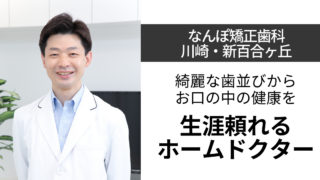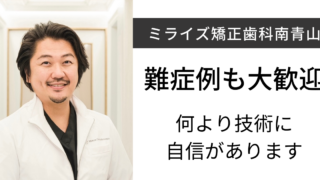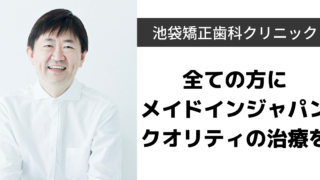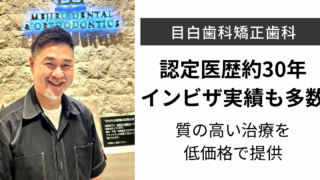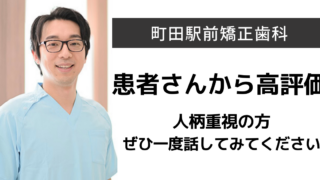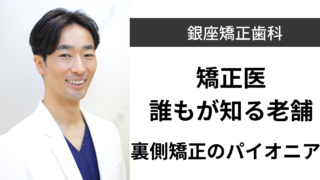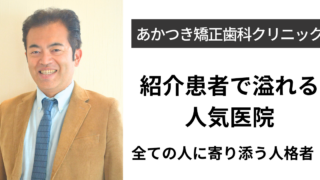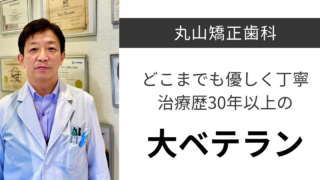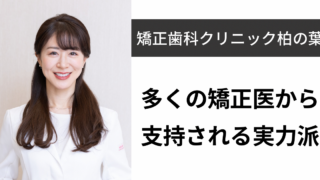
デンタルローンって何?審査やメリットデメリットについて解説!
デンタルローンとは

歯医者さんで高額な治療を受ける際に、分割できたらいいのにと思った経験がある方がいらっしゃるかもしれません。そのような時に便利なのがデンタルローンです。デンタルローンとは、歯科の治療に限定して利用できる分割払いのことです。こちらのコラムでは、デンタルローンのメリットやデメリット、審査や金利について解説します。
デンタルローンのメリット

デンタルローンのメリットは、なんといっても高額な治療費を無理のない範囲で分割払いができることです。歯科の治療には、健康保険で治せるものもある一方で高額な治療費が必要となる保険外診療もあります。そのような際に心強いのがデンタルローンです。
デンタルローンは通常のカードローンと違い、歯科の治療に特化したローンです。そのため、一般的なローンと比べ低金利なものが多い傾向にあります。歯科の保険外診療は、歯科矯正、インプラント、セラミックの詰め物や被せ物、義歯など多岐にわたります。これらの高額医療を受ける際に、ご自身の収入やお支払いが可能な範囲に合わせて、低金利でローンを組めるのがデンタルローンの1番のメリットです。
〈デンタルローンのメリットまとめ〉
・高額な歯科治療を分割払いで受けられる
・自分のペースで支払いが可能
・通常のローンに比べて低金利なことが多い(医院によっては無金利)
・定期収入があれば主婦の方でもローンを組める可能性が高い
・歯科医院の窓口やWebからの申し込みが可能
デンタルローンのデメリット

デンタルローンのデメリットとして1番気になる点は、すべての歯科医院で取り扱いがあるわけではないということです。高額な保険適用外の治療を行う医院では、おおむね導入されていることが多いですが、治療計画を立てる際にはデンタルローンの有無もあわせて確認しておくとよいでしょう。
〈デンタルローンのデメリットまとめ〉
・導入されていない歯科医院がある
・定期収入が無いとローンを組むのが難しい
・審査に落ちる場合もある
・条件によって金利手数料がかかる
デンタルローンの審査について

デンタルローンの審査には、おおむね銀行ローンと信販会社のローンの2種類があります。どちらも、年収や定期収入の有無、他社の借入有無や残高、これまでの金融事故などを照会した上でローンの可否が決まります。定期収入が無い場合や他社の借り入れがある場合は、審査が否認されることが多いようです。ただし、住宅ローンや車のローンは借り入れ残高があっても審査が通る可能性が高いとされています。いずれにしても、借り入れの支払いが遅滞なく進められていることが可否に影響することは間違いないといえるでしょう。
【デンタルローンの審査まとめ】
〈借入可能な確率が高いケース〉
・定期収入がある
・他社の借り入れがない
〈借入否認の確率が高いケース〉
・定期収入がない
・他社の借り入れがある
・借り入れの返済遅滞がある
・過去に金融事故をおこした
デンタルローンと院内分割の違い

歯科医院で分割払いを行う場合、主にデンタルローンと院内分割の2種類があります。2つの大きな違いは、どこが分割窓口になっているかという点です。デンタルローンは、銀行や信販会社が窓口となり、審査が通るとこれらの機関が治療費を立替払いしてくれます。これにより、ローンの返済はローン会社にしていきます。一方で、院内分割の場合は、医院が独自に設定した分割払いなので窓口は歯科医院です。そのため、返済も歯科医院内でしていくこととなります。
また、医療費控除についてもデンタルローンと院内分割には違いがあります。デンタルローンは、支払い中であっても契約をした年の全額分が控除の対象となります。一方で、院内分割は年内に支払いが完了している分が控除の対象です。そのため、支払い期間が長い場合は数年にまたがって控除が行われます。どちらも利息と手数料は控除対象外ですが、最大200万円まで控除されます。
【デンタルローンと院内分割の違いまとめ】
〈デンタルローン〉
・借入、返済ともに銀行および信販会社
・契約金額全体がその年の医療費控除対象
・一度に大きな控除額の還付がある
・回数が多いと利子がかかることが多い
〈院内分割〉
・借入、返済ともに歯科医院内
・年内に支払いが完了している分のみ医療費控除の対象
・医療費控除の還付金が分割される
・医院によっては利子が無い場合もある
デンタルローンの銀行ごとの金利比較
デンタルローンは、通常のクレジットカードローンより低金利で借入をできることが多いというのが特徴です。主なデンタルローンとカードローンの金利比較は以下のようなものがあります。
〈スルガ銀行デンタルローン〉
金利2.5〜5.0%
種類…デンタルローン
最大借入金額…800万円
最長借入期間120回以内
〈池田泉州銀行デンタルローン〉
金利…2.875〜4.375%
最大借入金額…1,000万円
最長借入期間…15年
〈イオン銀行デンタルローン〉
金利…3.8〜8.8%
種類…デンタルローン
最大借入金額…700万円
最長借入期間…8年
〈筑波銀行 筑波デンタルローン〉
金利…5.0%
種類…デンタルローン
最大借入金額…500万円
最長借入期間…10年
〈千葉銀行デンタルローン〉
金利…5.0〜5.4%
種類…デンタルローン
最大借入金額…500万円
最長借入期間…10年
〈新生銀行グループ アプラスデンタルローン〉
金利…3.9〜5.8%
種類…デンタルローン
最大借入金額…300万円
最長借入期間…120回
【一般的なローン】
〈三菱UFJ銀行バンクイックローン〉
金利…1.8〜14.6%
種類…銀行カードローン
最大借入金額…500万円
最長借入期間…借入金額により変動
〈プロミス〉
金利…4.5〜17.8%
種類…カードローン
最大借入金額…500万円
最長借入期間…借入金額により変動
デンタルローンが低金利な理由として、通常のローンのように手軽に追加借入ができないといった特徴があります。仮に追加融資を希望する場合には、複雑な手続きが必要となり審査が否認となる場合もあります。デンタルローンは、歯科の治療に特化し返済に限定されたローンのため、低い金利での借入が可能な仕組みとなっています。
一般的なカードローンの場合、追加の借入が可能なため最長返済期間の定めがありません。その分、手軽に借入ができてしまうため借り過ぎに注意が必要です。
銀行のデンタルローンは、多目的ローンのカテゴリの一部となっていることが多いようです。各銀行により、金利や限度額、借入期間などが異なります。治療計画を立てる際には、慎重に比較検討をし返済可能なローンを選択しましょう。
また、医院によっては一定回数まで患者さんの払う金利手数料を無料にしている医院も多くあるので詳しくは治療を希望する医院に聞いてください。
転院の際の手続き
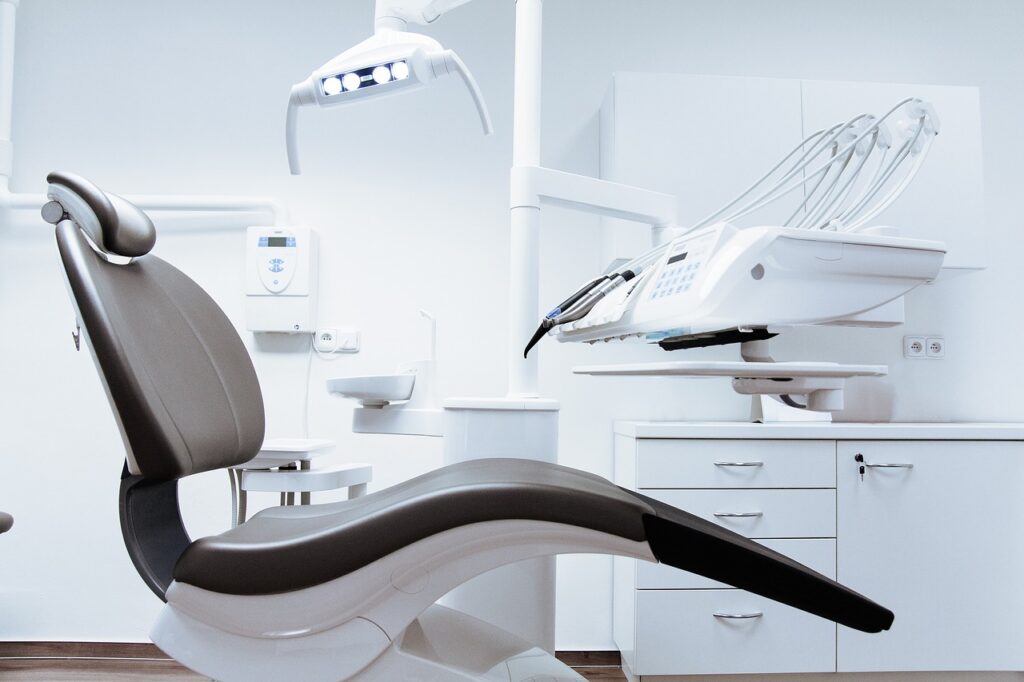
〈そもそもデンタルローンを組んだ後の転院は可能?〉
基本的に、デンタルローンの払い戻しはありません。そのため、転院自体は可能ですが治療費を一から払い直しになる可能性が高いことを認識しておきましょう。高額治療を行う際は、スタート時点での綿密な下調べと持続可能かといった判断がとても重要です。
途中転院に際しての返金がある場合も、基本的に医院と患者間で行われ、原則ローンを止めることはできません。
〈治療費の支払いはどうなるの?〉
万が一、治療をはじめてから転院を希望する際には、転院先で検査や治療計画を初期段階からすべてをやり直さなければならない可能性があります。そのため、転院先が元医院の分院だったりほぼ終わりかけの状態で知り合いの先生宛であったりする場合を除き、治療費はもう一度捻出しなくてはならないため、事前の計画をしっかりと立ててから治療に取り組むのが大切です。
転院に際してはこちらも参考にしてください。
〈救済措置はある?〉
ただし、治療がごく初期段階だった場合や院内分割の場合には、歯科医院のご厚意として、大きな費用負担なく転院が可能な場合もあります。どうしても転院しなくてはならなくなった場合には、黙って通院を辞めてしまうことなく歯科医院に相談してみるとよいでしょう。
〈デンタルローンを使う際に大切なこと〉
いずれにしても、高額治療をスタートしてからの転院は歯科医院のみならず患者様ご本人にも大きな負担となる場合があります。歯科医師や歯科衛生士とのコミュニケーションを大切にし、治療とローンを完走できるようさまざまなデンタルローンを検討してみましょう。
まとめ
デンタルローンは、通常のローンと比べ低金利での借入が可能なのが1番の特徴です。
一方で、一度組んだローンの払い戻しが難しい点や追加融資が複雑ということも実情です。デンタルローンの良さを最大限に活かすには、下調べと無理のない治療計画が必須です。こちらのコラムを参考に、ぜひともご自身にぴったりのデンタルローンを検討してみてください。
365dentist総監修 歯科医師/ゆきこ
長崎大学歯学部卒業、〜2018 九州医療センター、2018〜現在 都内歯科クリニック勤務監修 歯科医師/Naomi
臨床研修終後、都内審美歯科勤務。現在は歯科医師/歯科ライター


